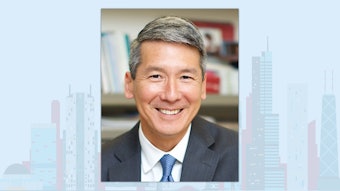Stepping up and speaking out
The importance of community outreach in combatting prostate cancer disparities.

Racial inequity in prostate cancer screening, diagnosis and management is an ongoing issue. Men of African American descent bear a disproportionate burden of disease, representing 37% of new prostate cancer diagnoses each year. Compared to other racial and ethnic groups (across numerous recent studies), Black men in the United States are two to three times more likely to develop prostate cancer. They are two to 4.4 times more likely to die from prostate cancer. From left: Christine Ibilibor, MD, MSc; Stanley Frencher, MD; Randy Vince, MD; and Robert Waterhouse Jr., MD, MBA
From left: Christine Ibilibor, MD, MSc; Stanley Frencher, MD; Randy Vince, MD; and Robert Waterhouse Jr., MD, MBA
According to Samuel L. Washington III, MD, MAS, the onus to improve outcomes for men in Black and Brown populations falls on all urologists and health care systems to actively engage in outreach efforts within the communities they practice and live in.
Dr. Washington will serve as the moderator of the plenary panel discussion, “Increasing Prostate Cancer Screening in Black and Brown Communities,” on Friday, May 3, at AUA2024. He, along with a panel of experts—Stanley Frencher, MD; Christine Ibilibor, MD, MSc; Randy Vince, MD; and Robert Waterhouse Jr., MD, MBA—hopes to impart insight and guidance to attendees so that they leave equipped and eager to take an active role in helping remove barriers to screening and treating this disease in those populations most affected by it.
“Reducing prostate cancer disparities in Black and Brown communities requires timely screening and is contingent upon appropriate evaluation and subsequent management to improve outcomes,” said Dr. Washington, who is a urologic oncologist, assistant professor of Urology, Epidemiology & Biostatistics, and associate chair of diversity, equity and inclusion for the Department of Urology at the University of California in San Francisco.
The first—and biggest—step toward improvement in this area is generating awareness and providing education about disease risk and the prostate-specific antigen screening process. Although he is not on the frontline of screenings in daily practice, Dr. Washington partners with local organizations that offer public opportunities to learn about prostate cancer and receive screenings.
He also worked with a multidisciplinary task force through the San Francisco Cancer Initiative to create a “risk-based approach” that involved implementing a health maintenance banner in the UCSF electronic health record. The new protocol saw a substantial rise in PSA screenings, particularly for Black men, who went from 29.7% screened in 2015 to 52.8% in 2021 (during the height of COVID-19).
Such results highlight the impact proactive change can have on enhancing community health, Dr. Washington said. They also demonstrate the importance of health care providers and organizations working together to deliver “timely, comprehensive care.”











